Do you want to make money while you’re asleep? Welcome to the world of affiliate marketing.
If you’re an online publisher, content creator, or digital marketer, you can earn a commission by promoting other people’s products or services.
Does affiliate marketing really pay? It absolutely does. Affiliate marketing spending has grown steadily each year since 2010, reaching $8.2 million in 2022.
Smart eCommerce businesses use affiliate marketers to spread the word about their products to new audiences. Those marketers then receive a payout in exchange for that promotion.
In this guide to affiliate marketing, we’ll explain everything you need to know, including affiliate marketing’s meaning, how it works, and how you can start earning money with affiliate links.
- What Is Affiliate Marketing?
- How Does Affiliate Marketing Work
- How Do Affiliate Marketers Make Money
- Types of Affiliate Marketers
- How to Start Affiliate Marketing
- How to Make Money With Affiliate Marketing
But before we dive into our guide on how to make money with affiliate marketing, let’s clarify why you should take our advice in the first place.
We’re (Humbly) One of the World’s Best Affiliate Marketers
Unlike other wannabe experts and marketing gurus, we practice what we preach and have done so for decades.
Our CEO, Syed Balkhi, is one of the top affiliate marketers in the world. We’ve built and managed several high-profile publications that attract millions of monthly visitors. These are sites you’re familiar with, like WPBeginner and IsItWP.
But let me tell you a secret about those sites:
They don’t actually sell anything.
So how do they earn money?
2 words: affiliate marketing.
That’s why we’re excited to teach you the affiliate marketing strategies we use. Not only that, but we’ll share how you can use the same strategies to increase your affiliate marketing revenue drastically.
Before we get in too deep, let’s make sure we’re clear on the definition of affiliate marketing and how it works. The beginning of this post will cover the basics of affiliate marketing for beginners.
If you’re already a seasoned pro, feel free to jump straight to our section on how to make money with affiliate marketing.
What Is Affiliate Marketing?
Affiliate marketing is a digital marketing strategy where an affiliate partner earns a commission for promoting someone else’s products or services. Affiliate marketers provide an advertising service by including referral links in their content. If a sale is made through their unique referral link, the affiliate earns a commission.
It’s classic advertising in a less intrusive way. Rather than promoting a product on your website with visual advertisements like this:
You embed the product link in your content like this:
In the image above, the affiliate partner is Bluehost, which offers website self-hosting services. In fact, the link in the previous sentence is actually an affiliate link. If you were to click that link and make a purchase from Bluehost, our company would receive a commission.
Does that mean you can create a website, toss in a bunch of affiliate links, and watch the affiliate commissions roll in? Not quite, but we’ll get to that.
For now, you need to know the basics of how affiliate marketing works:
- You recommend a product or service to your followers through your website, blog, or email list.
- Your followers purchase the product or service using your affiliate link.
- You get paid a commission for the sales made using your affiliate link.
Let’s break down this process into more detail to make sure you know exactly how to make a successful affiliate marketing strategy.
How Does Affiliate Marketing Work
To understand how affiliate marketing works, it’s important first to understand the several essential components of the affiliate marketing system.
Merchants create the product or service that needs promotion. They can be an individual, a large corporation, or anything in between. A merchant might also be called a brand, seller, creator, retailer, or vendor. For merchants, affiliate marketing is both low-cost and low risk. They usually only pay when the affiliate when a sale is made.
Affiliate marketers, or affiliates, promote the merchant’s products and attempt to persuade potential customers to buy them. They’re often publishers or content creators. Through these partnerships, marketers receive payment for successfully promoting the merchant’s products.
Consumers are the people who click the affiliate links and ultimately purchase the product. The affiliate receives a commission based on the sale.
Affiliate networks, or affiliate marketing programs, are intermediaries between the affiliate and the merchant. They offer a database of products for affiliates to promote. The affiliate network connects a merchant with affiliate marketers. They also generate unique, trackable links for each product or service. For instance, Amazon is the largest affiliate network for promoting consumer products. You can use the Amazon Associates program to create a custom affiliate link for any item sold on their platform. You likely see Amazon affiliate links regularly on various blogs and social media pages.
In short, affiliate marketers use affiliate networks to find products they can promote and to get unique affiliate links for those products. The marketer then includes that link in their website’s content. Consumers read this content and click the affiliate links. The network keeps track of all those clicks, plus any sales made through the link. Then, the merchant pays a commission to the marketer based on the number of clicks and sales.
How Do Affiliate Marketers Make Money
The income potential in affiliate marketing varies widely. Some marketers earn a few hundred dollars each month, while others hit 6 figures annually. The size of your audience plays a significant role in how much you can earn as an affiliate.
Different affiliate programs use various payment models, which may be called price models, payout models, or conversion types. The payment model specifies the goals for which you’ll get paid.
For example, if you promote a Software as a Service (SaaS) product, you may get paid based on the number of downloads or app installations. If you promote physical products, you may get paid for each purchase.
Most programs use last-click attribution, rewarding 100% credit to the affiliate that received the last click before the purchase. However, this practice may change as programs adopt better attribution models and reporting. For instance, you may share equal credit for a sale with other affiliates in a buyer’s customer journey or conversion funnel.
Affiliates can get paid in various ways, depending on the program. Some common payment structures include:
- Pay per sale (PPS): In this model, the affiliate receives a commission for every sale they generate for the merchant. This is the most common payment method used in affiliate marketing.
- Pay per click (PPC): The affiliate earns a commission each time a user clicks on their affiliate link, regardless of whether they purchase.
- Pay per lead (PPL): The affiliate gets paid when a referred user fills out a form, signs up for a trial, or takes any other action the merchant considers a lead.
- Revenue sharing: The affiliate receives a percentage of the revenue generated by the sale rather than a flat fee per sale.
- Cost per action (CPA): The affiliate is paid when a specific action is taken by the consumer, such as filling out a form, subscribing to a service, or downloading software.
- Tiered commission: Affiliates receive a higher commission rate once they reach a certain level of sales or referrals.
Check out this article for more affiliate marketing tips to earn more income through affiliate marketing.
Types of Affiliate Marketers
The types of affiliates are defined by the marketer’s level of knowledge about the product they’re promoting, i.e., have they personally used the product or service they’re advertising?
In specific industries, such as tech services or diet products, customers may require proof that the affiliate has tested and approved the product to establish trust. However, you don’t necessarily have to use every product you promote.
In 2009, prominent affiliate marketer Pat Flynn categorized affiliate marketing into 3 types, unattached, related, and involved, to distinguish between affiliate marketers who have a close association with the product and those who do not.
Unattached: Unattached affiliate marketing is where the marketer has no affiliation or knowledge of the product or service. Such affiliates do not possess expertise or authority in the product’s niche and cannot endorse its use.
These marketers typically run PPC (pay-per-click) campaigns, relying on affiliate links to encourage customers to make purchases.
This type of affiliate marketing is attractive to those who seek to generate income without committing to the product or establishing customer relationships.
Involved: Involved affiliate marketers connect directly with the product or service they promote. These affiliates try the product and gain first-hand experience, believe in its quality, and can make claims about its use. Involved affiliates talk about their experience with the product when marketing it, resulting in a reliable and trustworthy source of information.
For example, review sites often used involved affiliate marketing.
Related: Related affiliate marketing, on the other hand, is a fusion of unattached and involved. These affiliates may not personally use the company’s products or services, but they connect to their target audience. They have established followings or influence within the product’s niche and can provide some level of authority.
For instance, there are many lifestyle bloggers and YouTube influencers who have large audiences interested in fashion. In related affiliate marketing, these content creators might promote clothing brands that they haven’t actually purchased from.
While related affiliate marketing allows affiliates to leverage their expertise to drive traffic, they risk losing the trust of their audience if they recommend a bad product or service they have not used.
Of these 3 types, involved affiliate marketing requires the most effort and time. However, the returns on investment are likely to be higher because you have built credibility and trust with your audience.
How to Start Affiliate Marketing
If you want to learn how to become an affiliate marketer, there are 2 things you need to do first:
- Create a website or blog in your niche
- Choose affiliate products to promote
Let’s look at each of these in a bit more detail.
Create a Website or Blog for Your Niche
To make money with affiliate marketing, you first need a website.
When it comes to building your website, you have tons of options. But we highly recommend using WordPress.
With WordPress, anyone can quickly build a professional-looking website in minutes, even if you don’t know how to code:
WordPress has more tools to help their sites perform at a higher level than other website builders. That means more functionality across your site and a better user experience (UX) for your visitors.
WordPress is your way to go if you’re interested in making money with affiliate marketing. You can check out these tutorials if you need help building your site:
- How to start a WordPress blog
- How to make a website with WordPress (step-by-step-guide)
Once your website is built, you must determine which products you want to promote. That takes us to the second prerequisite for starting out with affiliate marketing.
Alternative: Influencers can use affiliate links on their Instagram pages, YouTube channels, or other social media platforms.
Choose Affiliate Products To Promote
If you’ve done the work to choose a niche, choosing affiliate products to promote should be easy. Choose products that fit your niche and relate to your content.
One of the best ways to select your affiliate products is by joining an affiliate network.
As discussed earlier, affiliate networks are businesses that connect merchants and affiliate marketers so both can earn more money. Affiliate marketers use these networks to choose the best products to promote on their sites.
There are many affiliate networks out there, but here are a few of the most popular:
One of the benefits of these affiliate marketing services is they typically provide more sales data on the different promotional products. You can then use that data to increase your affiliate marketing profits.
For more information, check out our helpful post: Earnings-Per-Click: How to Win Big at Affiliate Marketing.
You can optimize your affiliate strategy by making data-driven decisions, rather than simply choosing products that appeal to you.
Get Started With OptinMonster Today!
Our conversion experts will design 1 free campaign for you to get maximum results – absolutely FREE! Click here to get started →
Now that you have a website and have joined an affiliate network, it’s time to start monetizing your site with affiliate marketing.
Let’s get started!
How to Make Money With Affiliate Marketing
By following the 5 steps below, you can learn how to do affiliate marketing and start making money quickly.
Step 1: Create Content That Generates Affiliate Revenue
The basic meaning of affiliate marketing is simple, and it’s relatively easy to get started. However, building enough traffic to generate a significant income takes time and effort.
Many beginners publish random content and insert affiliate links within the article. That strategy may or may not work, but if you genuinely want to boost your affiliate revenue, you must ensure your published content reaches your target audience.
Your target audience is someone who wants to buy a product but is wondering whether or not the product is worth it. They’re searching for product reviews, lists, and ratings to help them make their choice.
Sometimes, the user may need help knowing which product will fulfill their needs.
As an affiliate marketer, it’s your job to help users discover the right product for their needs. By producing high-quality content, you can help them make a purchasing decision, and then you can navigate them to the product website to complete the purchase.
Pro-Tip: Your articles should target investigational intent keywords. These are the Google search terms that your target audience uses to research the product they’re interested in.
You can check out our guide on choosing the right keywords for more details.
Step 2: Promote Your Affiliate Products in the Content
Just like the keywords you target, you should take an investigational approach to your content. Focus on topics that provide the information you’re target audience is searching for.
Once you’ve done your keyword research and have your content ideas, it’s time to start inserting affiliate links in your content.
How you insert your affiliate links will depend on the specific article you’re writing.
For instance, you shouldn’t add 5 different affiliate links to a review post for a single product. Instead, your entire post should focus on driving traffic to that 1 product’s affiliate link.
On the other hand, if you’re showcasing the “Top 10 Tools for Solving X,” you’ll include affiliate links for each list item. Doing so will increase your chances of making more sales.
The goal is to insert your links as strategically as possible.
Here are a few tips to get the most out of your affiliate links’ placement:
- Only link where appropriate: Don’t add an affiliate link if it doesn’t fit your content. Irrelevant links will negatively impact the user experience (UX) and cost you more lost sales in the long run.
- Add links as early as possible: If you’re showcasing many products in 1 article, add your affiliate products at the top of the list. Most people won’t take the time to read an entire article. You want to make sure they see your affiliate links early on.
- Get more out of your site’s space: You can use floating bars, inline banners, and sidebar widgets to promote your affiliate products. These enhance the impact of your content and lead to more sales over time.
Here’s an example of affiliate links from a post by IsItWP. It lists the best recipe plugins for WordPress:
The first several items in this list are affiliate links. This strategy ensures that readers will see the affiliate links, while still allowing them to research all options.
Again, you want to promote your links often, appropriately, and as powerfully as you can.
Pro-Tip: Invest in an affiliate link plugin before adding hundreds of affiliate links across your site.
Imagine having to sort through and update hundreds of expired affiliate links. This task becomes even more difficult when you have no idea where you’ve placed them on your website.
You’re looking at hours of headaches. Plus, when you let your links expire, you lose out on tons of profit.
Fortunately, this is one nightmare that can be avoided with an affiliate management plugin. One of the best options on the market is Pretty Links:
Pretty Links is an affiliate marketing management plugin that lets you keep track of your affiliate links. It’s easy to set up and super user-friendly, even for beginners. Best of all, it lets you put your affiliate marketing on auto-pilot.
It also lets you cloak affiliate links to make them look short and neat. This makes them easy to share through emails and social media.
Whenever you need to update your old affiliate links from your partners, you’ll be able to accomplish it in minutes, not days.
Plus, if you do run into trouble, Pretty Links has an amazing support team to help you at each step.
At this point, you’ve created the right content and strategically placed your links, using an affiliate management plugin. Next, it’s time to kick things up a notch with targeted conversion campaigns.
Step 3: Turn Your Visitors Into Affiliate Customers
One of the biggest mistakes new affiliate marketers make is assuming they need 10x the traffic to get 10x the profit.
It doesn’t work that way, which is excellent news for you.
For example, let’s say you’re promoting a product that pays a $50 affiliate commission for every sale. Out of every 100 visitors who click your affiliate link, 2 of them buy the product. This gives you an affiliate conversion rate of 2%.
That means the CPC (cost per click) you earn is $1 per click.
(CPC = Total affiliate revenue / total traffic you sent)
If you send 2X more visitors to the affiliate product site, you could also double your affiliate revenue. Thankfully, you don’t have to drastically increase traffic to double your affiliate clicks.
Instead, you can boost your revenue with a conversion optimization campaign.
With conversion software like OptinMonster, you can increase your revenue by converting more of your existing traffic into affiliate customers. Without a doubt, this strategy is much easier than doubling your traffic.
Here’s how OptinMonster can boost your affiliate income:
a) Create a Popup Campaign That Promotes an Affiliate Product (And Increase Revenue by 30%!)
Lightbox popups are 1 of the best ways to catch your user’s attention.
Creating a popup campaign is the easiest method to convert more of your visitors into affiliate customers.
OptinMonster provides over 50 pre-built templates to help you make the right campaign for your affiliate product. We also offer many targeting rules and campaign triggers to ensure you’re showing the right message to the right people at the right time.
This is the exact strategy Top 6 Digital used to increase their affiliate revenue by 30%.
The company had a webpage to help parents choose the right car seats for their children. When the reader tries to leave this page, the following campaign would appear on their screen:
This simple popup campaign was hugely successful. It grabbed the audience’s attention, and over 17% of users clicked the affiliate link.
b) Display Campaigns When Users are More Likely to Buy
When it comes to popup campaigns, targeting is important. Targeting lets you control who sees your popups, as well as when they see them. For example, studies show that the best time to show a popup is when a user is about to leave your site.
With OptinMonster’s Exit Intent technology, you can show a popup that promotes an affiliate offer when your users are about to leave.
Our customers use Exit Intent along with Page-Level Targeting and see massive results. Page-level targeting allows you to create affiliate offers for specific pages on your site. So when a visitor is reading an article about the best hiking boots for winter, you can show them a campaign that highlights the EXACT affiliate product you’re promoting in that article.
Since the offer you promote in that campaign is highly targeted, it’s more likely to convert than a generic campaign.
The WordPress hosting company FlyWheel used page-level targeting to increase engagement by 660%. For instance, the popup above offers a guide to increasing freelance revenue. FlyWheel showed this popup only on blog posts related to running a business.
Or take the fitness company Crossrope, for example. They grew their email list by over 900% by catching abandoning traffic with exit-intent popups.
You can combine these strategies to skyrocket your affiliate clicks.
Step 4: Optimize Your Existing Traffic for More Revenue
This next step comes from a strategy that’s driven by something called “the 80/20 rule.”
The 80/20 rule, in this case, suggests that 80% of your profits will come from 20% of your content. While it’s not an exact metric, the basic principle stands firm:
Identify your highest converting content. Make those posts the priority for your affiliate campaigns.
Once you know that a particular post or video is resonating with your audience, you can create a targeted campaign with OptinMonster to increase affiliate sales.
This is a much better plan of action than blindly making campaigns for every page on your site.
How do you get started?
Jump into your Google Analytics dashboard, identify the articles that bring in the most content, and then create targeted campaigns for those URLs.
And if you really want to level up your game, you should consider getting MonsterInsights:
MonsterInsights is the world’s #1 Google Analytics (GA) plugin. Many marketers love the idea of gathering data from Google Analytics, but they get confused, annoyed, or intimidated by GA’s user interface.
Rather than letting all that valuable information go to waste each month, you can get the same data delivered straight to your WordPress dashboard. This data includes a review of your site’s top posts:
Once you’ve identified which posts bring the most traffic, you can optimize your content and conversion campaigns to generate more affiliate revenue.
This strategy will ensure that you’re always prioritizing your most profitable content. That means you can save time and increase revenue as efficiently as possible.
Step 5: Grow Affiliate Revenue from Your Email List
No matter how you look at it, email marketing is still the best way to earn passive income. All of the other methods fall short in some way.
Search engine optimization (SEO) is great until Google changes its algorithm and your rankings tank. Paid ads can bring quick results, but only if you have the budget for a lot of trial and error. Paid ads require also constant care and attention to keep conversion rates high.
But your email list gives you a direct route to your target audience.
It’s full of people who are interested in your niche and have already engaged with your content. That means they’ll make an ideal audience for your affiliate marketing campaigns.
Unfortunately, many businesses struggle to grow their contact list to the point where monetization is possible.
That’s where OptinMonster comes in:
OptinMonster is hands down the best way to generate leads for your affiliate email campaigns.
Similar to how you use conversion campaigns to send traffic to your affiliate links, you can also use them to grow your email list.
You can create targeted popups, floating bars, fullscreen welcome mats, and more to entice your website visitors to join your list. Offer a lead magnet to convert even more visitors into subscribers. Lead magnets can be special offers, free ebooks or PDF guides, or coupon codes that users only receive by giving you their email address.
Here’s an example of an optin campaign you can use to grow your list:
Want more examples of lead magnets? Check out our list of 60+ lead magnet ideas you can start using today.
Once you’ve built an email list, you can send email campaigns with your affiliate links embedded in them.
Make sure that you read this post on how to create an affiliate email marketing campaign before getting started.
Email marketing is a great way to improve your revenue. You can use your email list to drive more traffic to your high-converting posts, or you can include your affiliate link in your emails. Either way, more people will see your affiliate links.
And, again, to grow your list, the best tool for the job is OptinMonster.
OptinMonster can help you capture more leads. More leads mean a bigger subscriber and customer base, which means a higher revenue potential.
In fact, check out these success stories from some of the businesses that use OptinMonster with great success:
- How Adam Enfroy Got Over 11k Subscribers
- American Bird Conservancy Grew Their Lead Collection by 1000%
- AutoAnything Increased Daley Email Optins 2.5x
Get Started With OptinMonster Today!
Our conversion experts will design 1 free campaign for you to get maximum results – absolutely FREE! Click here to get started →
These are just a few examples of people who grew their list with OptinMonster. You can have similar results and make even more money with online marketing.
We hope you found this article helpful. If so, you may be interested in reading the following posts:
- Affiliate Marketing Statistics All Marketers Must Know
- Best Tools for Affiliate Marketers
- How to Increase Affiliate Sales by 30% With 1 Simple Strategy
- Content Marketing Examples
- Sales Promotion Examples
Are you ready to start making more money with affiliate marketing? Sign up for your risk-free OptinMonster account today!

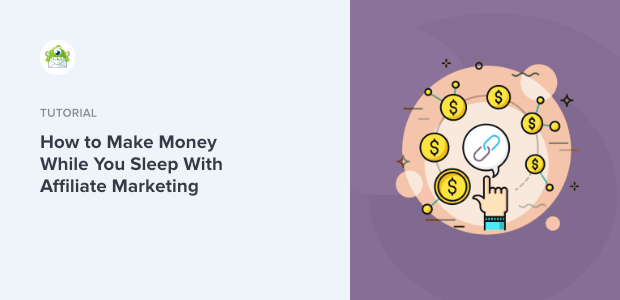
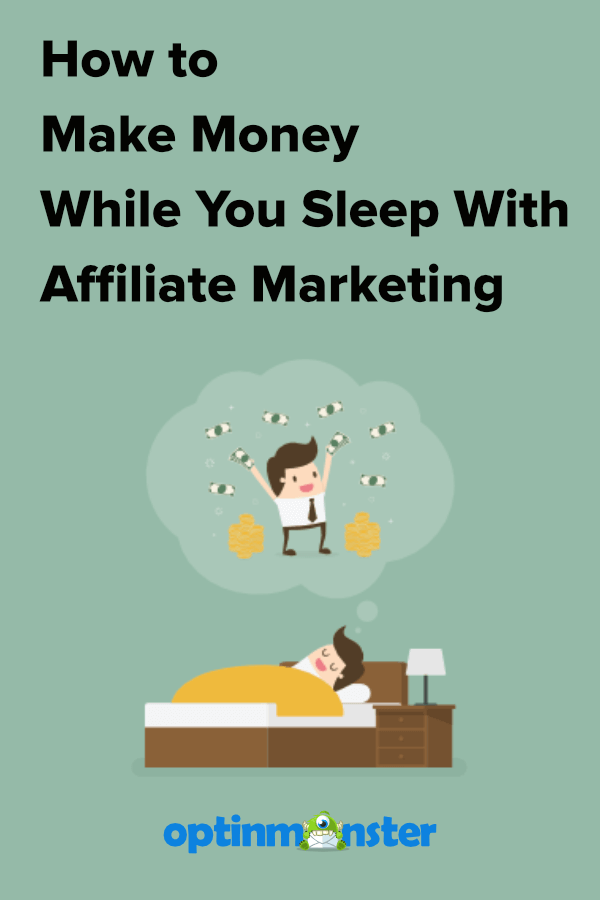
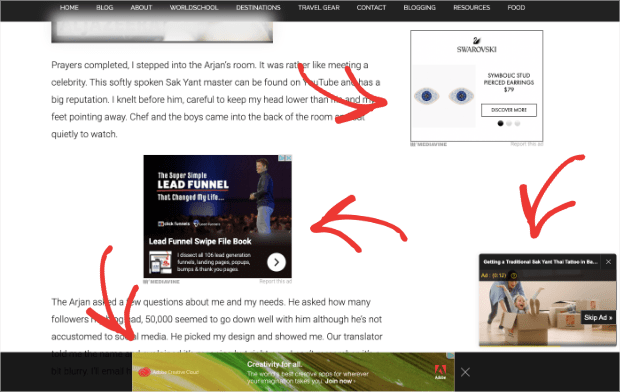

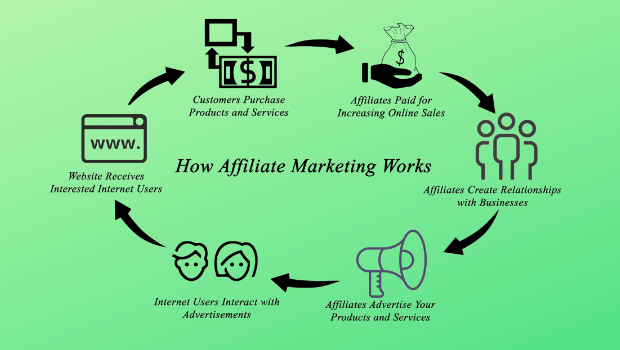
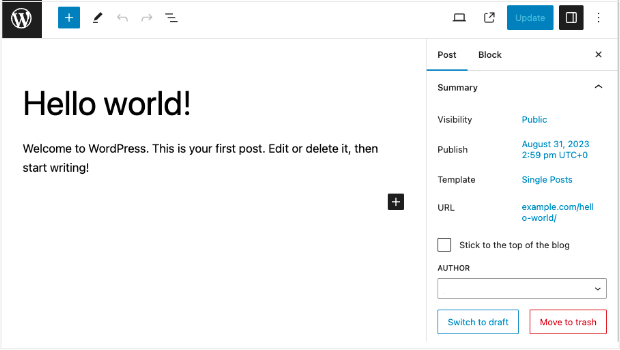
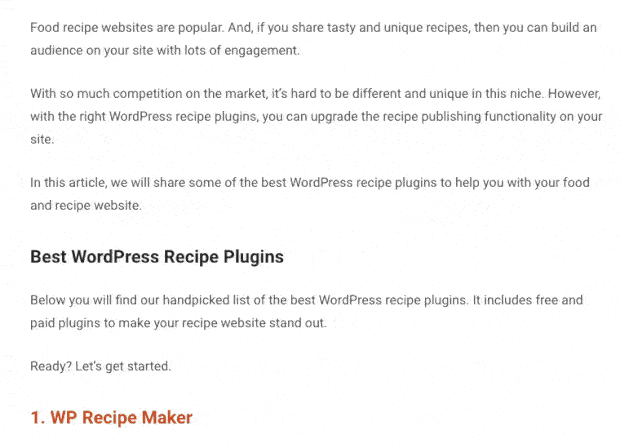
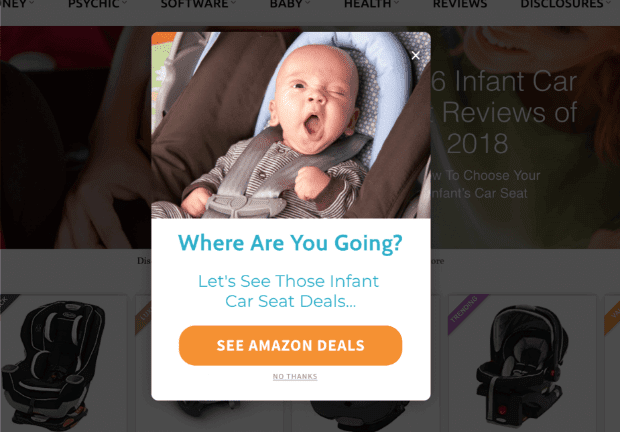
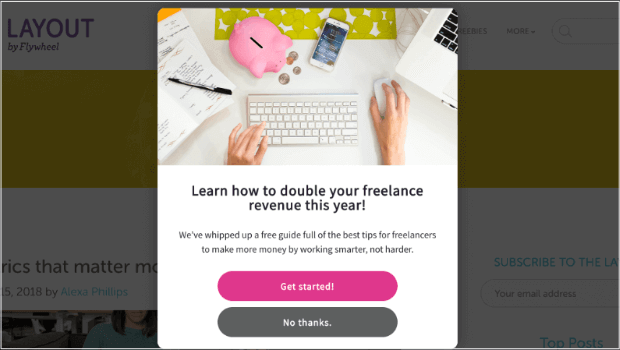
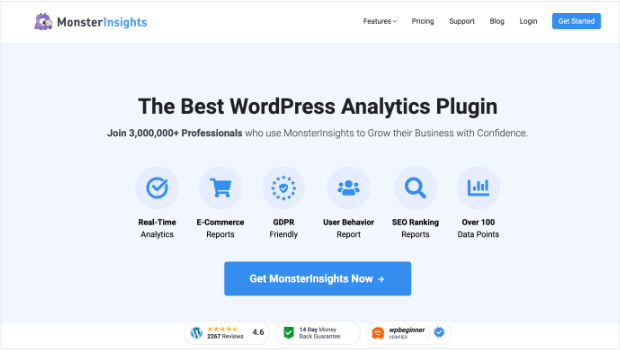
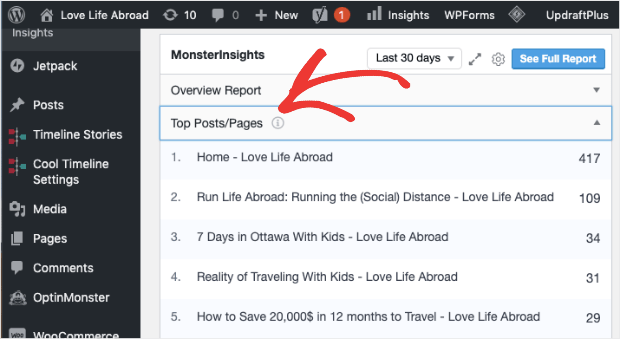





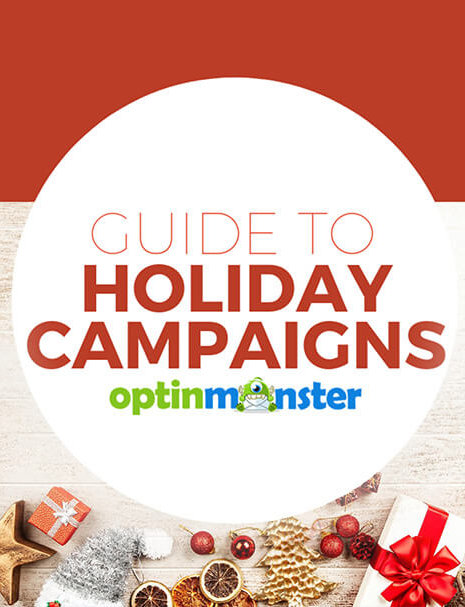
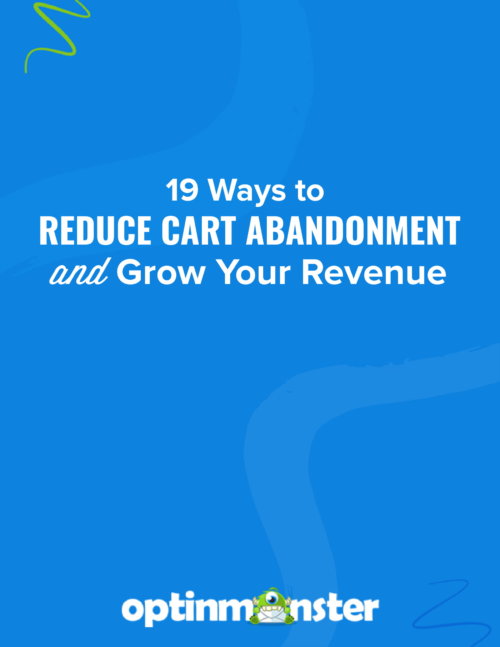



Add a Comment